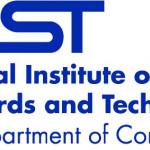- Branche: Technology
- Number of terms: 2742
- Number of blossaries: 0
- Company Profile:
The National Institute of Standards and Technology (NIST) — known between 1901 and 1988 as the National Bureau of Standards (NBS) — is a measurement standards laboratory and a non-regulatory agency of the United States Department of Commerce. The institute's official mission is to promote U.S. ...
A minimum-weight tree connecting a designated set of vertices, called terminals, in an undirected, weighted graph or points in a space. The tree may include non-terminals, which are called Steiner vertices or Steiner points.
Industry:Computer science
A minimum-weight tree in a weighted graph which contains all of the graph's vertices.
Industry:Computer science
A minimum-weight tree in a weighted graph which contains all of the graph's vertices.
Industry:Computer science
A model of computation consisting of a (possibly infinite) set of states, a set of start states, an input alphabet, and a transition function which maps input symbols and current states to a next state. Usually understood to be a finite state machine.
Industry:Computer science
A model of computation consisting of a finite state machine controller, a read-write head, and an unbounded sequential tape. Depending on the current state and symbol read on the tape, the machine can change its state and move the head to the left or right. Unless otherwise specified, a Turing machine is deterministic.
Industry:Computer science
A model of computation consisting of a set of states, a start state, an input alphabet, and a transition function that maps input symbols and current states to a next state. Computation begins in the start state with an input string. It changes to new states depending on the transition function. There are many variants, for instance, machines having actions (outputs) associated with transitions (Mealy machine) or states (Moore machine), multiple start states, transitions conditioned on no input symbol (a null) or more than one transition for a given symbol and state (nondeterministic finite state machine), one or more states designated as accepting states (recognizer), etc.
Industry:Computer science
A model of computation consisting of a set of states, a start state, an input alphabet, and a transition function that maps input symbols and current states to a next state. Computation begins in the start state with an input string. It changes to new states depending on the transition function. There are many variants, for instance, machines having actions (outputs) associated with transitions (Mealy machine) or states (Moore machine), multiple start states, transitions conditioned on no input symbol (a null) or more than one transition for a given symbol and state (nondeterministic finite state machine), one or more states designated as accepting states (recognizer), etc.
Industry:Computer science
A model of computation proposed by A. K. Chandra, L. Stockmeyere, and D. Kozen, which has two kinds of states, AND and OR. The definition of accepting computation is adjusted accordingly.
Industry:Computer science
A model of computation where the cost of a computation is measured by the total number of memory accesses to a random access memory with ⌈log n⌉ bits cell size. All other computations are not counted and are considered to be free.
Industry:Computer science
A model of computation whose memory consists of an unbounded collection of registers, or records, connected by pointers. Each register may contain an arbitrary amount of additional information. No arithmetic is allowed to compute the address of a register. The only way to access a register is by following pointers.
Industry:Computer science
